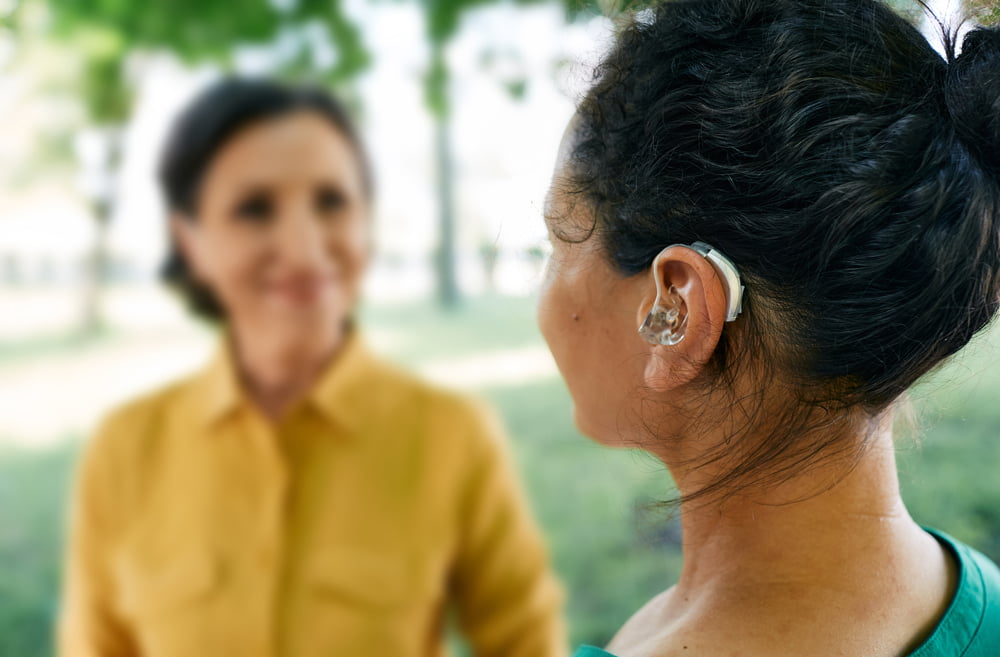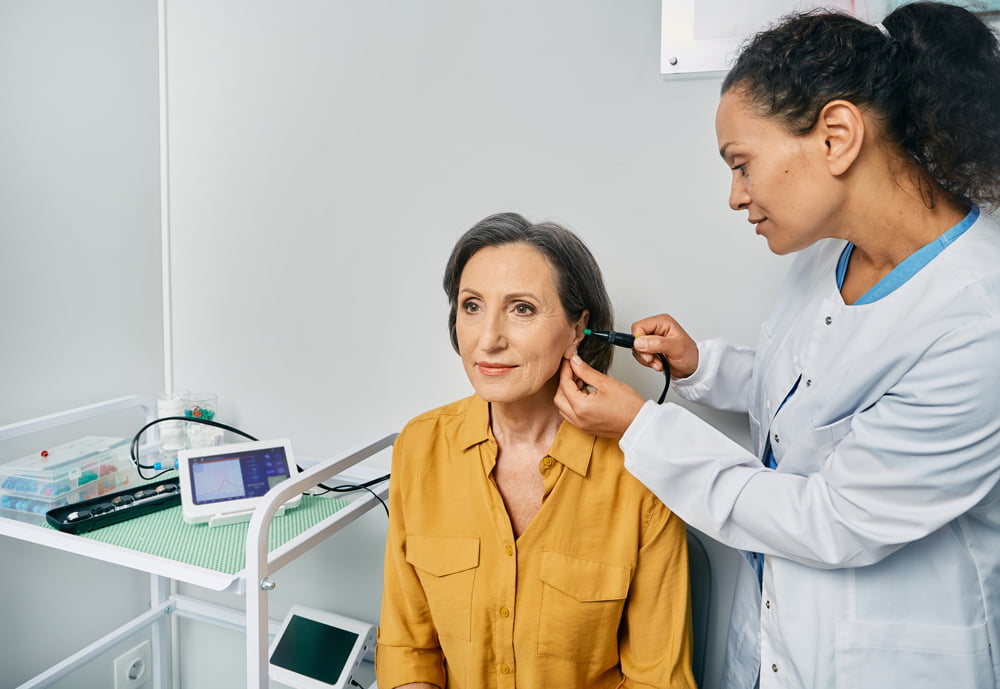What Is Auditory Deprivation?
Auditory deprivation occurs when your brain no longer receives or interprets sound due to hearing loss. This leads to brain atrophy and potential issues with processing audiyory stimuli, even after you being wearing hearing aids.
Auditory deprivation can affect individuals with any level of hearing loss, not just those whose condition is severe. According to the authors of a study called ‘Cross-Modal Re-Organization in Adults with Early Stage Hearing Loss’, changes in brain function and the way the brain organises and utilises cognitive resources not only begin in the initial stages of hearing loss, but could also be a significant factor in ‘determining behavioural outcomes for listeners with hearing loss’.
Hearing Loss and Brain Function
Hearing impairment accelerates brain atrophy. A lack of sound input understimulates brain cells, causing the brain shrink as it no longer has to work to interpret sound.

A study conducted by Johns Hopkins and the National Institute of Aging compared brain changes over time between adults with normal hearing and those with hearing loss. Although the brain shrinks with age, the study found this process happens faster in adults with hearing loss.
Why Does Auditory Deprivation Occur?
Hearing loss develops gradually, making it difficult to detect in its early stages. Many individuals ignore symptoms, hesitant to seek help due to the ongoing stigma around hearing loss. Unfortunately, neglecting the condition won’t stop it from progressing, and auditory deprivation can still occur.
Alternatively, the problem could occur if you receive a diagnosis and treatment but fail to wear your hearing aids consistently or only use one when both require support.
Is Auditory Deprivation Reversible?
It is unclear whether brain atrophy is permanent, as this may vary from person to person.
The brain’s flexibility allows it to adjust and rebuild connections when it receives auditory input again. According to a study from frontiersin.org, adverse effects in the brain could improve with consistent use of hearing aids, slowing down or completely stopping brain atrophy and helping the brain interpret sound signals again.

Getting Used to Your Hearing Aids
Since hearing loss occurs gradually, both you and your brain adapt to reduced sound input. When you first begin wearing hearing aids, background noises, as well as the sound of your own voice, can seem loud and overwhelming.
The good news? Your brain will adjust to the auditory stimuli and will re-learn which sounds are important and which can be ignored. Start by gradually increasing the time spent wearing your hearing aids and you will most likely notice that the more time you spend using them, the easier it becomes to manage background noise.

The Importance of Early Assessment
To prevent or reverse auditory deprivation, you must address your hearing loss. Managing your condition allow your brain to resume normal function
To do this, you will need to reach out for medical assistance to have a diagnostic hearing evaluation performed. This will help your hearing care provider determine the level and type of hearing loss, as well as the most suitable treatment.

The next step in preventing auditory deprivation is to receive adequate treatment for your hearing loss. In most cases, this will be the use of suitable hearing aids. Your hearing care provider will recommend the most appropriate model in accordance with your type and level of hearing loss, as well as your personal preferences. There is a wide range of hearing aid models available on the market nowadays, and anyone can discover a product to fit their lifestyle.
Do you think you might be suffering from undiagnosed hearing loss? We’ve got you! Hear4U provide free, no-obligation hearing tests using the latest diagnostic technology in the field to receive an in-depth idea of your ability to hear so that we can establish a clear, precise diagnosis and the most suitable treatment. Additionally, we offer a robust range of the latest hearing aids to provide you with hearing support of the utmost quality. You can book your free-of-charge appointment by Clicking here






